Student Blog

How to Find Scholarships (yes, you qualify!) ⟩
November 5, 2024, by Avery
Admissions Life Hacks School/Life Balance
Let’s be honest — education is expensive, especially at USC. That first time you open your financial aid report can be scary and overwhelming. The weight of potential debt and student loans is daunting, and for many of us, staying in school requires tough sacrifices and working multiple jobs just to make ends meet.
One thing that many students don’t realize however, is just how much free money is available to them in the form of scholarships! I’ve heard it all:
“Oh, I don’t think there’s a chance I would actually win the scholarship.”
“I didn’t realize that I qualified!”
“Wait, I didn’t know this many scholarships were out there!”
“I don’t want to take the time to apply when I could be doing other things or just working a job instead.”
In reality, there are numerous independent organizations that WANT to give you their money so that you can pursue your education. Sometimes, it just takes a little digging to get there! I’ll be honest, taking the time to write the essays, figure out the deadlines, and get letters of recommendation is time consuming. This can feel overwhelming and exhausting, especially with the constant demands of schoolwork as a full-time student. However, at the end of the day, the rate of return on these awards is HIGH. Let’s say you spent 3 hours applying for a $500 scholarship. That equates to earning over $160 an hour. Now imagine if that is a $1,000 application? $5,000? It quickly begins to feel like the time applying for scholarships is being much smarter spent than working a few extra hours at a minimum wage job.
So, where to start? I like to begin by researching scholarship opportunities specific to the area where I am from. While many of these local scholarships are only available for high school seniors, I was really surprised to find out my freshman year that quite a few of them have money available for those already in college as well. These awards are great as they are designated only to a specific area or field, meaning less people can apply = you have a better chance of receiving the money.
Now let’s look towards USC specifically. To begin, when applying to USC (undergrad or OT school), be sure to hit that November 1st EA deadline so that you can be considered for the large merit-based scholarships that are available.
The Chan website has links to resources of external scholarships. The list is long, which means there have to be at least a few you qualify for. My advice is to open a Google Spreadsheet, make columns to label the due date, amount, name of award, link, and basic things needed to apply (essay, letter of rec, transcript, etc). Then, go through every award and add any to your spreadsheet that you meet the criteria to apply to. This will keep you organized and will help to not let any deadlines sneak up on you.
![]()
Here is an example of what my scholarship tracker spreadsheet looks like
Chan has a page with resources for their internal scholarships. Add these to your spreadsheet as well.
USC also has several scholarships for those engaged in unpaid research. Check out Dornsife’s SOAR-SURF-SHURE scholarships, as well as Chan’s Occupational Therapy Student Research Fund. These can be incredible opportunities to learn and be involved in something that interests you academically, add to your professional resume, and get ‘paid’ simultaneously.
Next, put together a list of companies you have ties to. Think about places you work, shop, where your family and friends work, where you do your banking, non-profits you volunteer at, etc. There’s a good chance one of these organizations has an annual scholarship award.
Finally, many scholarship search engines exist such as scholarships.com and fastweb.com, where you can filter your search based on your area of study and demographics.
Keep track of those deadlines, and happy applying!
⋯

12 Tiny Habits That Transformed My Life in 6 Months as a Student ⟩
October 29, 2024, by Jowy
Hi there! I’m Jowy Cenat, and today I’m sharing the small, consistent habits that changed my life over the last six months. These might seem simple, but trust me — they’ve been game-changers.
“Simplicity is the ultimate sophistication.” — Leonardo da Vinci
1. Two minutes of jump-rope:
No need for an intense workout first thing in the morning. Two minutes of jump rope gets my heart pumping and my mind awake. It’s quick, easy, and surprisingly powerful.
2. Stepping outside:
Nothing beats stepping outside for a bit of fresh air and sunlight. It’s become my morning ritual for alertness and grounding. I’ll sometimes combine this with the jump rope for a two-for-one!
3. Revewing my goals:
Taking a few moments to look over my goals reminds me of what I’m aiming for. It’s like a reset that refocuses my mind and makes those long-term plans more achievable.
4. Reading a passage in the morning:
Instead of checking my phone first thing, I read something inspirational or philosophical. It’s a nice mental start to the day before the notifications start rolling in.
5. Practicing gratitude:
A few moments spent reflecting on what I’m grateful for grounds me. Gratitude has shifted my perspective, helping me start each day feeling more positive and centered.
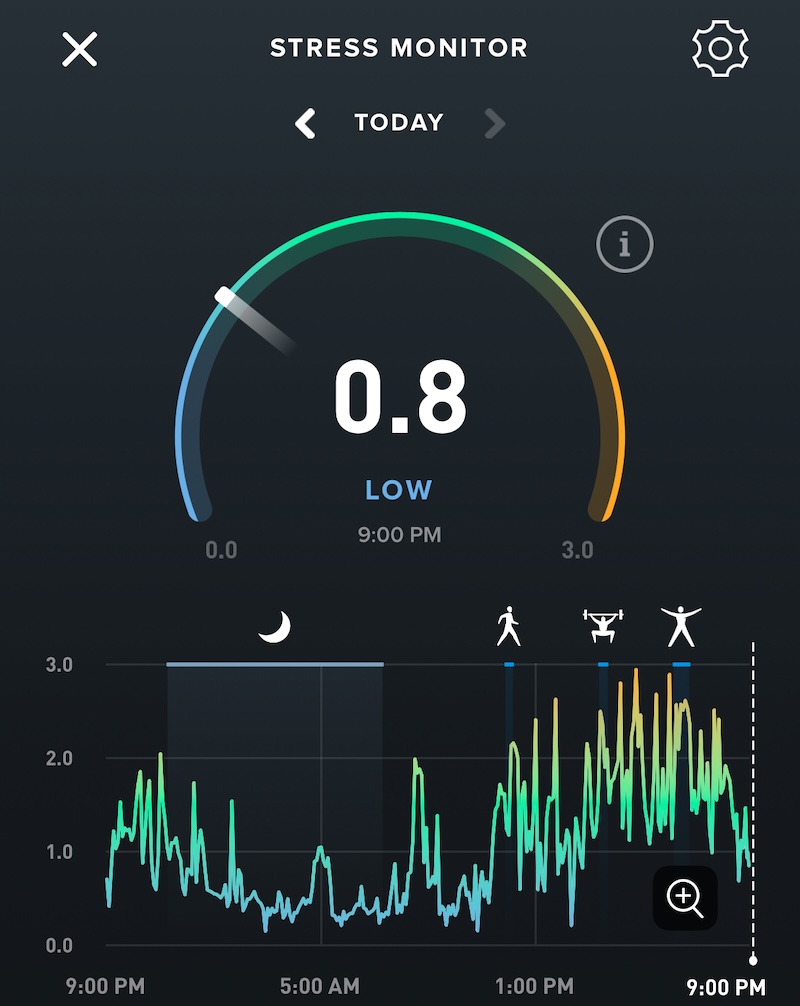
6. Ending the day with a reflection:
I take a few minutes every night to reflect on the day — what went well, what could be better. This habit has been a great way to learn from each day and to let go of what didn’t work.
7. Keeping a reading habit:
I made it a point to read something every day, even if it’s just a few pages. The consistency has kept me curious, entertained, and always learning something new.
8. Setting micro-goals:
Breaking down big goals into smaller steps has been empowering. Each completed step brings a little victory, making the bigger picture feel achievable.
9. Walking 13,000 steps a day:
Getting my daily steps in has kept me active and energized. Sometimes it’s through a workout, other times just through exploring a park or neighborhood. The movement has done wonders. I was born in NYC, and unfortunately, I miss the walkability of the city.
10. Prioritizing sleep:
I started tracking my sleep and making it a priority. Once I realized how big of an impact rest has on my productivity and mood, it became non-negotiable.
-Sleep-
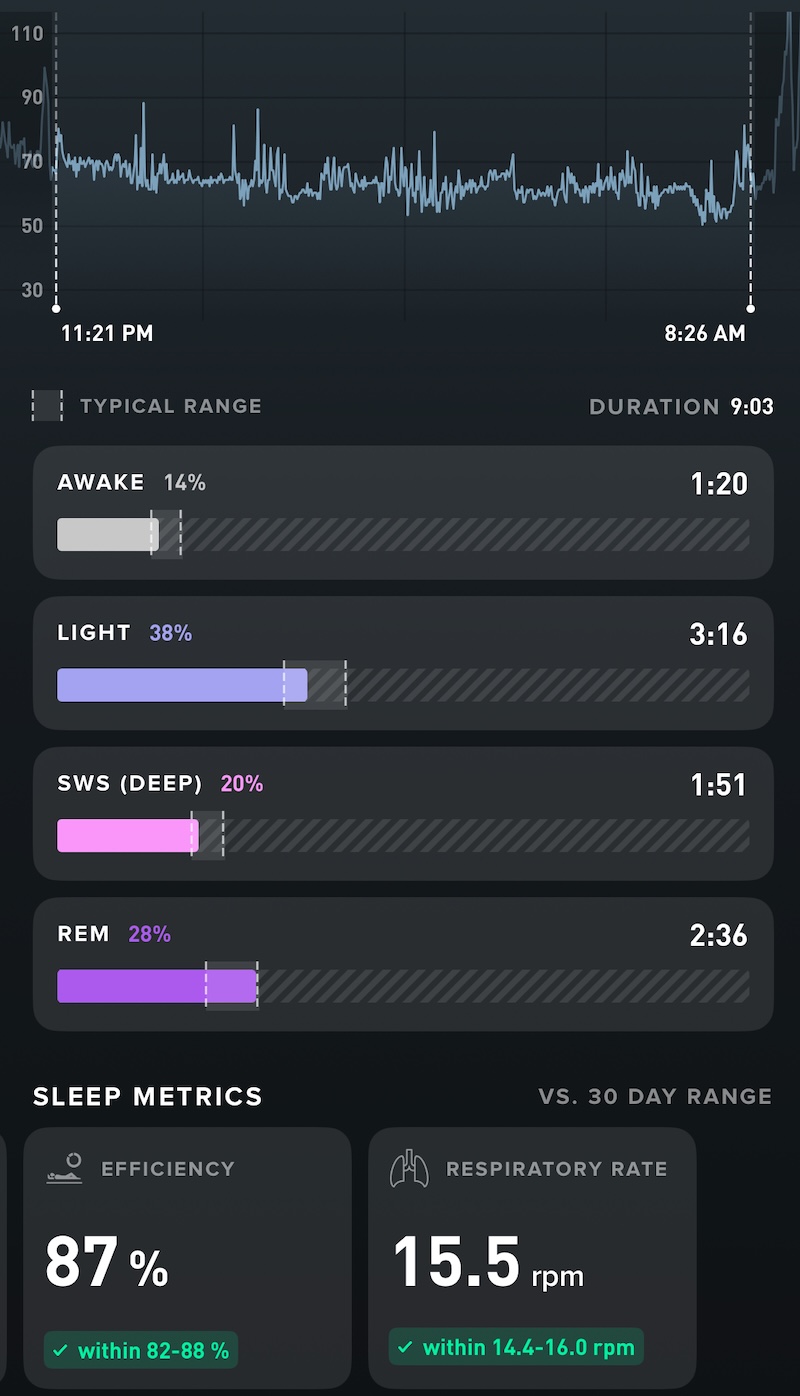
11. Celebrating small wins:
Finally, I learned to celebrate the small wins. Whether it’s hitting my daily steps or finishing a task, I let myself feel proud of those moments. They keep me going and remind me that progress is being made.
Bonus:
Implementing these habits has been an incredible journey. They might seem small, but the impact has been huge throughout my time in the program. Having my own habits, best practices, as well as learning from various courses, like health promotion or lifestyle redesign has been a game changer. I hope you find something here that inspires you!
*If I were to add another #12, I’d say boba + matcha is a tiny habit. Just a small habit . . . but let’s be real, life is better with a little boba and matcha in the mix!
⋯
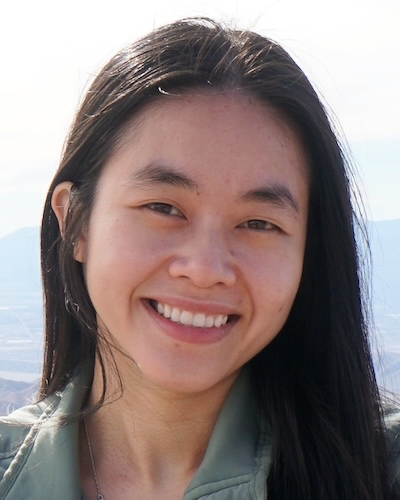
My Mental Health and How It Led Me to OT ⟩
October 22, 2024, by Dana
Beginnings and Endings First-Gen
As an immigrant, the idea of the “American Dream” was the main path that every immigrant aimed to achieve. All my life, I was told to keep learning and going to school to achieve higher education so that I can make more money and live that “American Dream”. So, being in an Asian immigrant household, I was expected to become a doctor, lawyer, engineer, or entrepreneur of some sorts in high positions. My first time ever where I thought of a career path for myself was in middle school. Low and behold, I thought of becoming a lawyer. I had this immense confidence that I could argue anything and everything with those around me whenever I disagreed with them. However, that did not last very long when high school came along and my confidence and mental health plummeted.
High school was an interesting time, but it was also a traumatizing time for me that is buried all the way in the back of my mind. I was not given sufficient guidance nor opportunities to explore what I potentially wanted to do in the future. It was a time where academic excellence was ingrained in my mind by my parents and teachers. Excelling in classes and engaging in educational organizations were the priorities of what other people wanted for me. It took me some time to process, after the fact, that that was one of the causes of my mental downfall. In addition, a huge life event of my mom passing away during my sophomore year created even more mental turmoil. As much as I expressed what was happening to me in my high school, they wanted me to focus on strengthening my college applications with grades, standardized tests, and personal development. Ironic because the only personal development my high school allowed was to develop our academic skills. With no guidance there, I fought to find my own path.
Getting past the grief of my mom being gone was what felt like the longest mental journey of my life. However, her passing sparked my love for healthcare. There were some things I wished the healthcare system could have done for her to increase her quality of life by maintaining her independence and promoting occupations in which she could still engage in. Watching her lose all her ability to do things for herself was difficult as a teenager because I had seen her do almost everything for our family. Because my high school wasn’t helping me explore career paths, I took it upon myself to research healthcare professions that aligned with my values and goals of helping people with terminal conditions have some independence and internal satisfaction with what they can do while they are still alive. With extensive research, I came across Occupational Therapy.
I didn’t follow the traditional path that was expected of me, but I found something better: a career that aligns with my values, one where I can help others maintain their dignity and independence, just as I once wished for my mom. Occupational Therapy became more than just a profession — it became a way for me to honor her, and in some ways, to heal myself.
⋯
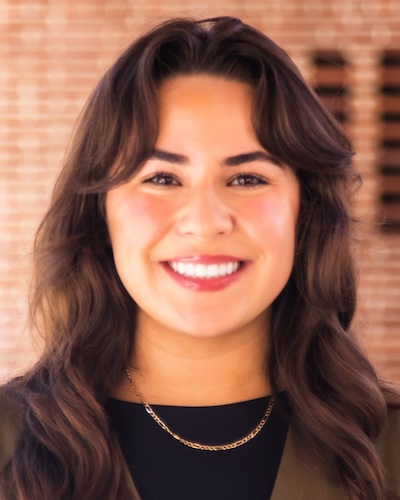
My Summer at a Play-Based Sensory Integration Clinic ⟩
September 27, 2024, by Kimberly Rochin
This summer, I had the chance to be a camp counselor at Play 2 Progress (P2P), a sensory integration clinic that uses play as its core. As someone who’s all about pediatrics, this experience wasn’t just another job — it was eye-opening. I got to see how powerful play can be in helping kids grow and learn.
Every day at camp was buzzing with energy. The sounds of laughter, excitement, and even frustration filled the air as the kids worked through different challenges. Even though I’ve worked with kids before, P2P was different. Instead of just giving directions, I learned how to empower kids by letting them take control. With sensory processing in mind, I started to find ways for them to use their senses to better understand their behavior and choices. One of my favorite parts of the summer was watching the kids tackle sensory-rich games. These games weren’t just fun — they helped with balance, coordination, and fine motor skills. We turned obstacle courses into mini-adventures, art into sensory experiences, and group games into lessons in teamwork and patience. It was amazing to watch the kids grow more confident with each challenge they faced.
But what stuck with me were the differences between the three, four, and five-year-olds. Even though their ages were close, their attention spans and social skills were worlds apart. That taught me that you can’t expect every child to engage the same way. Each kid has their own developmental pace, and it’s important to meet them where they are to truly support their growth.
While I did come home sometimes covered in slime or my pants splattered with paint, this experience was worth every messy moment, leaving me with unforgettable memories and a deeper passion for helping kids through play.
If you have any questions or would like to learn more about my experience, please do not hesitate to reach out.
Till next time!
⋯
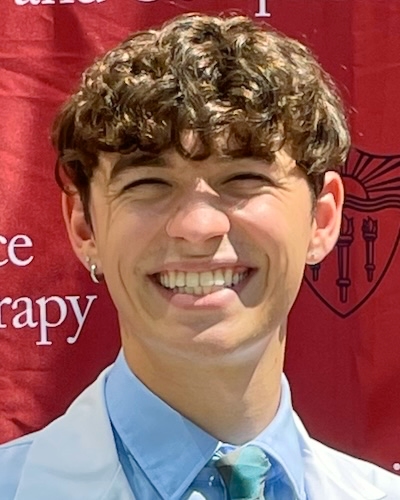
A Legacy of Hard Work, Perseverance, and Occupation ⟩
September 27, 2024, by Mason
Beginnings and Endings School/Life Balance
Hi everyone! In my introductory blog post, I talked to you all about why I chose to take on the challenge of becoming an occupational therapist. In case you missed it, let me give you a refresher. My mother is a pediatric occupational therapist and has served various populations of children with special needs and developmental disabilities for over 30 years. Growing up around my mother and watching her treat and impact the lives of the children she worked with sparked my passion and lifelong goal to help others. My mother always taught me that no matter what you do, you should leave the world better than you found it, and use your energy, health, and opportunities to help those who have less or do not have the same luxuries. Throughout this program, there have been many times when I doubted myself and my abilities to succeed as a student, clinician, and overall individual. But in those moments I have always had my mother and her lessons to support me.
My mother has always been a key pillar of support in my life. However, my mother was also not shy about pushing me to do my best. Growing up, my mother always had one rule: it was okay to fail as long as you tried your best. In every moment of failure or setback throughout my college years so far I always tried to remember that simple lesson because I knew that my best was within reach if I worked hard and put in the effort. It wasn’t easy to move across the country to a state I had barely visited, work multiple jobs to support myself throughout my education or start a full graduate course load while my friends moved on to full careers after their undergrad. College is not an easy challenge, and it’s not meant to be. After 4 years of strong effort, I still find challenges and overwhelming moments every other week. But I know I can get through it because I have the people around me that make me feel supported.
In a funny way life always comes full circle. This year to my utmost pride, pleasure, and enthusiasm my mother started a new journey of her own and returned to school to earn her post-professional doctorate in occupational therapy. Despite not being in school for almost 30 years and diving into an educational landscape that has changed fourfold, she’s taking on this challenge to grow and better herself, and I couldn’t be more proud. As children, you always view the relationship you have with your parents as a one-sided transaction. They teach you, they support you, and they help you grow to dreams and goals they know you can accomplish. However, as you inevitably grow up and expand in your ability to understand those around you, you begin to realize how much you impact their lives as well. We can teach our parents, we can help them grow, but most importantly we have the ability to support them amid the vulnerability that makes change so scary.
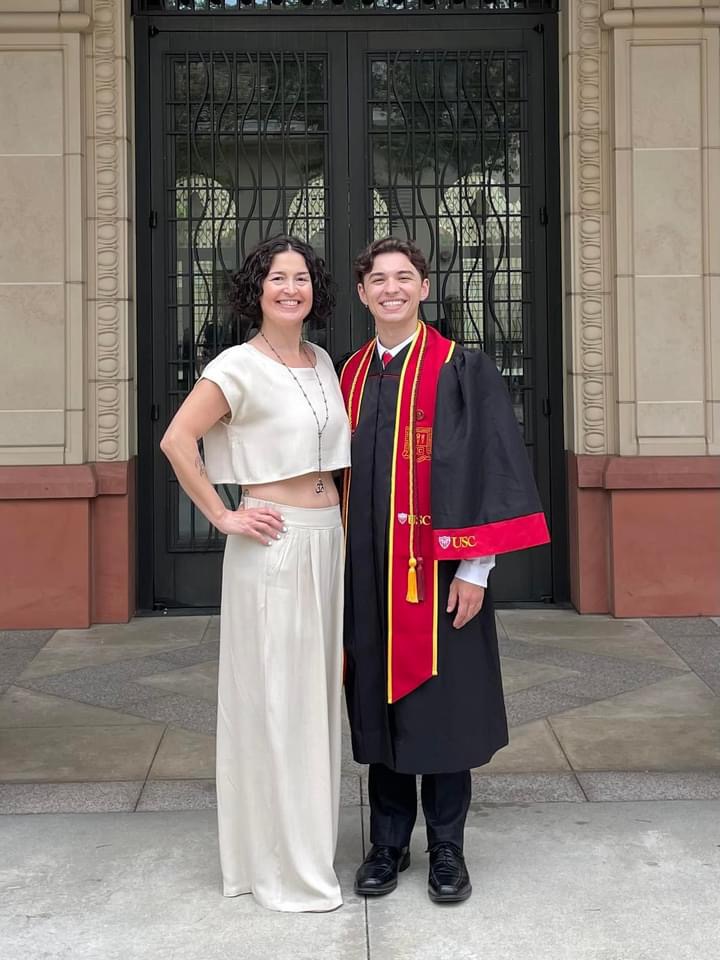
My mother inspired me to become the person I am today, and today I’m lucky enough to inspire my mother to reach the exact same potential she has always seen in me. So when you’re reflecting on the challenges and obstacles that stand in your way, don’t ever forget about the people in your life that lead you to greatness. Cherish those who have always supported you and take any opportunity you can to return the favor by supporting them.
That’s all for now, and remember to Fight On!
⋯





